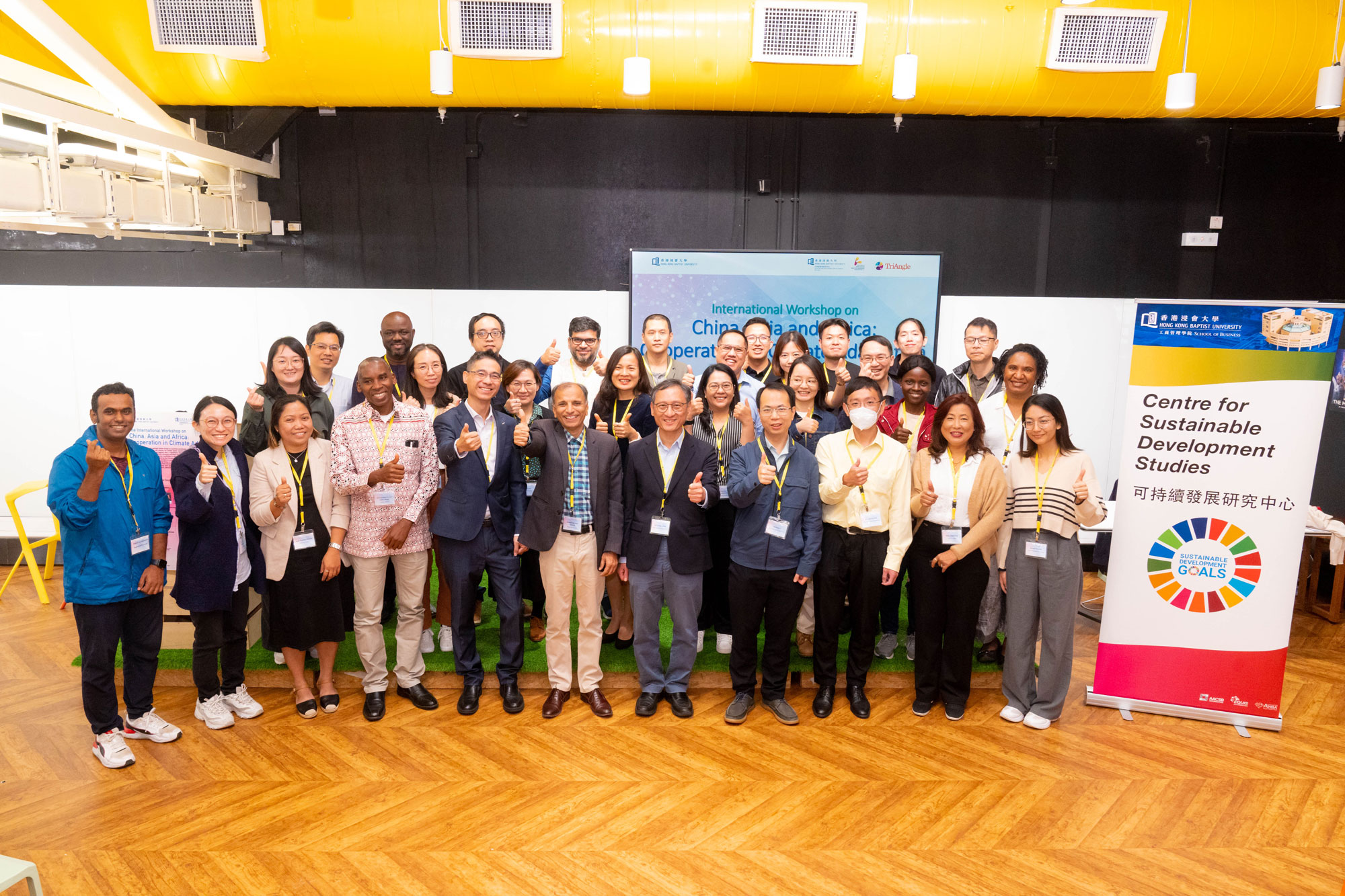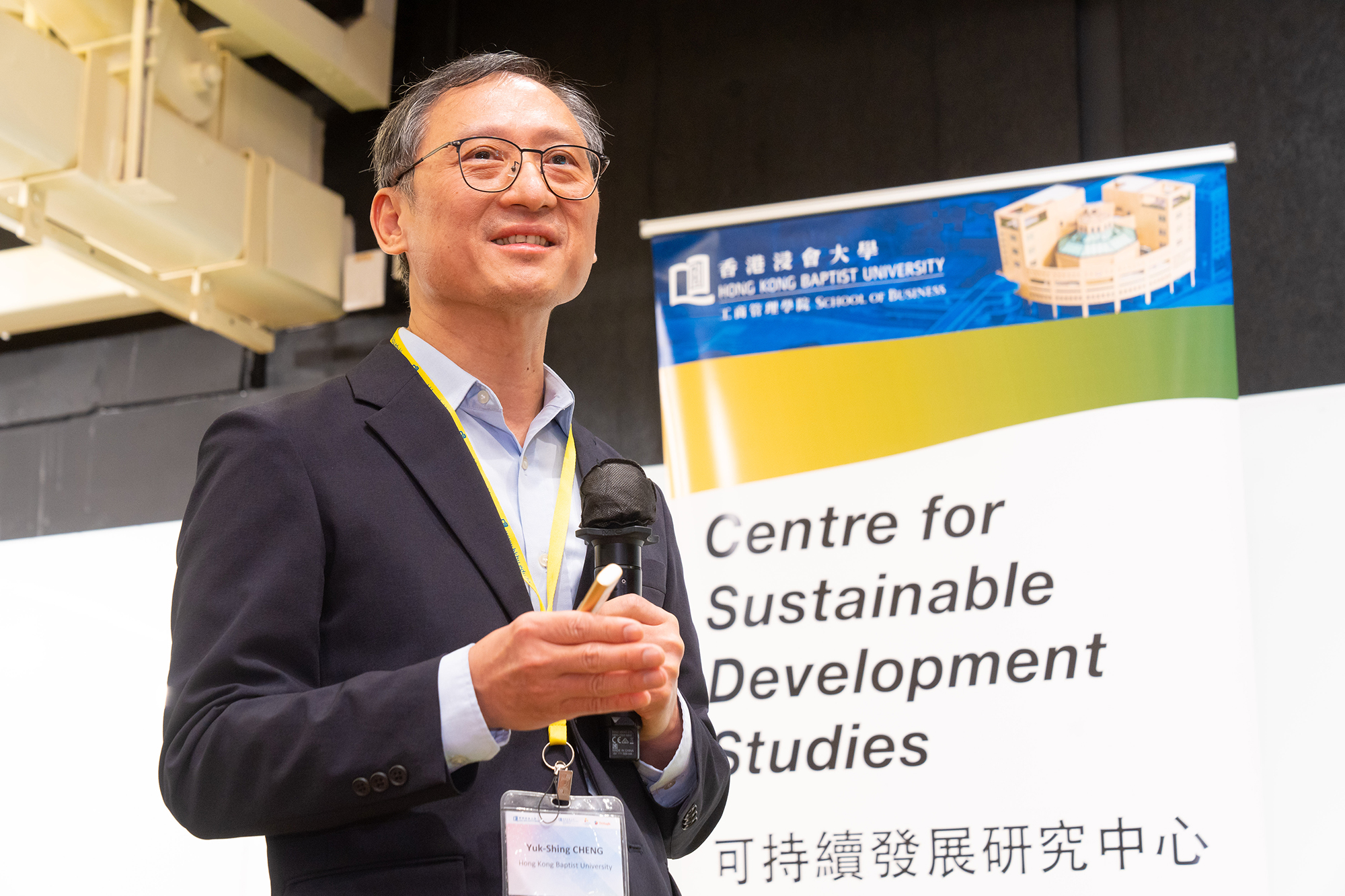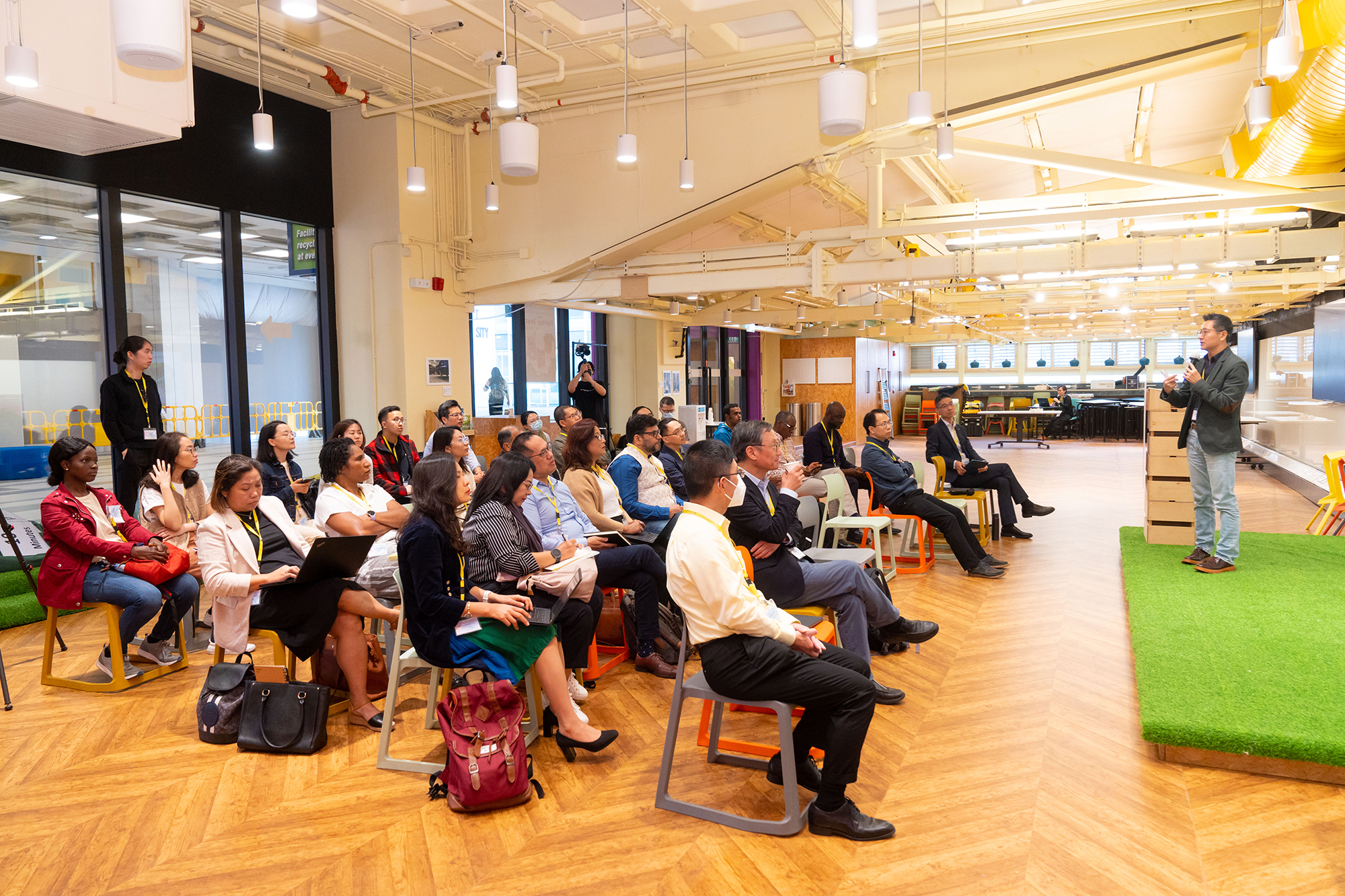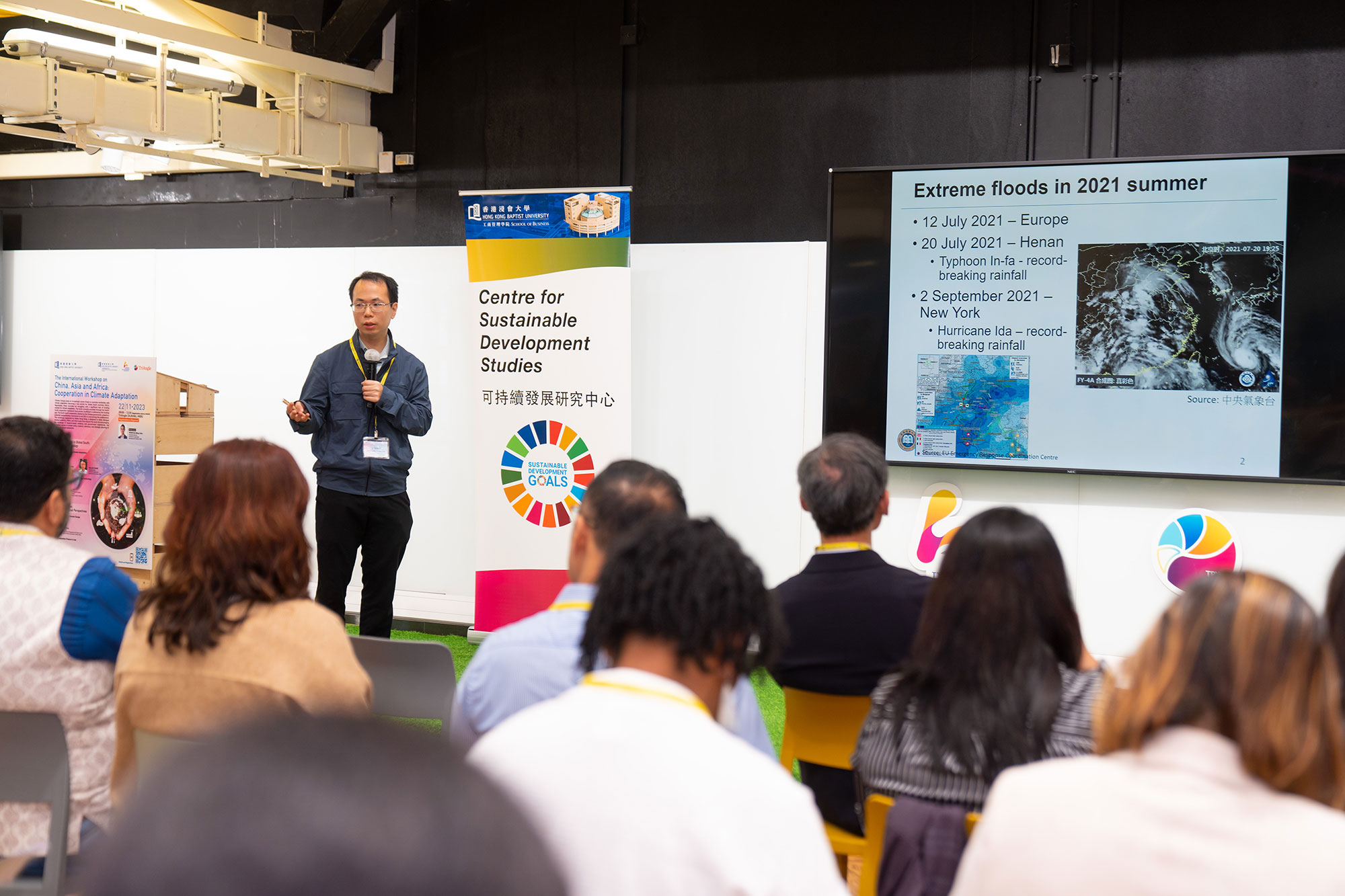CSDS Workshop
HKBU School of Business hosts International Workshop to Shed Light on Climate Adaptation from Academic and NGO perspectives


The Centre for Sustainable Development Studies (CSDS) of the HKBU School of Business organised a two-day international workshop titled "China, Asia, and Africa: Cooperation in Climate Adaptation". This event, held on 22-23 November 2023, brought together about 40 participants from academics, NGOs and think tanks to facilitate the sharing of research-based insights and on-the-ground experiences related to climate adaptation.
Prof. Yuk-shing Cheng, Interim Dean of the School of Business and Director of the CSDS welcomed the guests and expressed gratitude for the support of Oxfam Hong Kong to facilitate an international dialogue on climate adaptation. During the welcoming remarks, Prof. Cheng said, "as the first signatory of the United Nations’ Principles for Responsible Management Education (PRME) in Hong Kong, the School of Business commits to promoting sustainable development through research and education programmes.”
Serving as the moderator of various sessions, Dr. Kin-Ming Wong, Associate Director of the CSDS, underscored the advantages of sharing and integrating perspectives from multiple disciplines, and having a dialogue between academic researchers and front-line practitioners from NGOs.
As the first speaker, Mr. Man-kit Chung, Research Fellow of the CSDS, shared his insights on China's assistance in finance and technology to Global South countries (GSCs) on climate adaptation. He said, “stakeholders in GSCs should deepen their understanding of China’s strategies in providing aid and loans, and identify local-context issues to enhance the effectiveness of the programmes.” Prof. Cheng further suggested various approaches for improving climate policy and advocacy among NGOs.
Prof. Albert Ko, Office of Service Learning of Lingnan University, shared practical cases and experiences in combating climate change by utilising accessible technology in the humanitarian field. Prof. Jianfeng Li, Professor of Geography and Director of the Centre for Geo-computation Studies at HKBU, emphasised the significance of striking a balance between costs and benefits in constructing sea walls as a means to mitigate floods in the era of climate crisis.
Mr. Ghulam Mustafa Talpur, the Regional Advocacy and Campaigns Lead of Asia at Oxfam International, passionately shed light on the pressing issue of climate justice. He highlighted the stark disparity where the bottom 50% of the global population, responsible for only 12% of carbon dioxide emissions, disproportionately shoulder 75% of the resulting consequences. Moreover, these marginalised population possess a mere 2% of the resources needed to effectively address and combat climate change.
The practitioners from seven countries in Southeast Asia, South Asia, Africa and Oceania highlighted the perils their local populations confront and shared their strategies and tools to bolster local communities in their fight against climate change.
Established in July 2022, CSDS focuses on how institutions, policies, and practices affect the achievement of selected sustainable development goals (SDGs) in global and local contexts. It also facilitates the organisation of educational activities related to sustainable development in collaboration with community partners.



